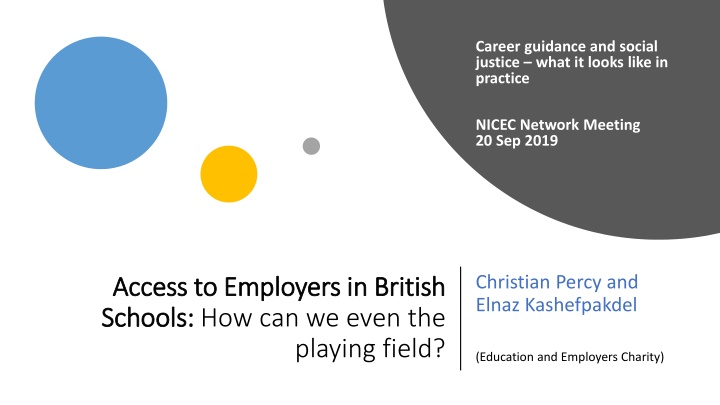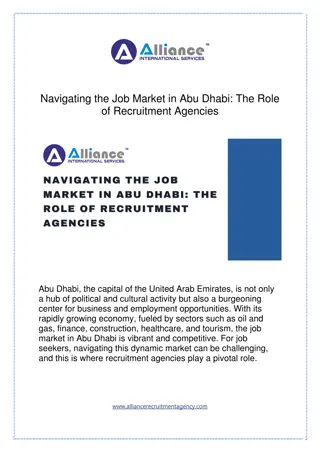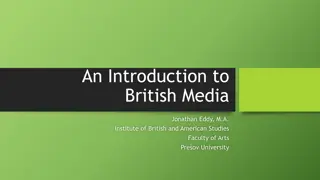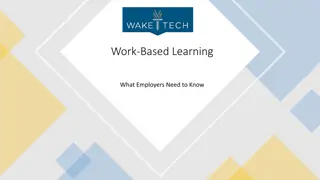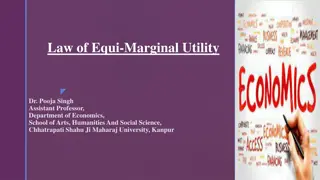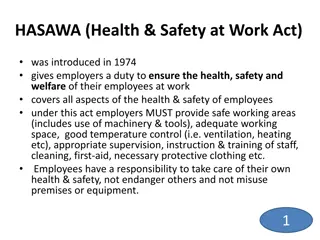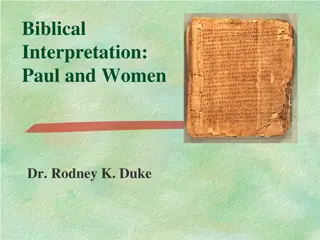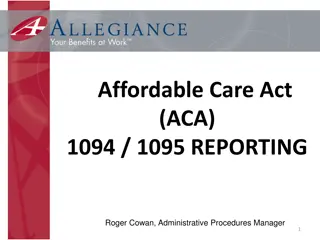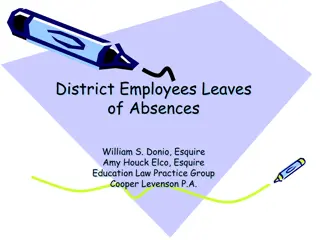Access to Employers in British Schools: Equalizing Opportunities
Access to employers in schools plays a crucial role in shaping students' future career prospects and financial success. Studies show that career talks in schools can significantly impact earnings, with each additional talk leading to higher incomes in later years. This access can help mitigate weak prior social capital and bridge the gap between students with varying networks. However, it's essential to recognize that historical patterns of social inequality can still influence outcomes, highlighting the importance of providing equal opportunities for all students.
Download Presentation

Please find below an Image/Link to download the presentation.
The content on the website is provided AS IS for your information and personal use only. It may not be sold, licensed, or shared on other websites without obtaining consent from the author.If you encounter any issues during the download, it is possible that the publisher has removed the file from their server.
You are allowed to download the files provided on this website for personal or commercial use, subject to the condition that they are used lawfully. All files are the property of their respective owners.
The content on the website is provided AS IS for your information and personal use only. It may not be sold, licensed, or shared on other websites without obtaining consent from the author.
E N D
Presentation Transcript
Career guidance and social justice what it looks like in practice NICEC Network Meeting 20 Sep 2019 Christian Percy and Elnaz Kashefpakdel Access to Employers in British Access to Employers in British Schools: Schools: How can we even the playing field? (Education and Employers Charity)
Why does access to employers during school matter? Career talks aged 14-15 vs ln. wages aged 26 (British Cohort Study data, Kashefpakdel & Percy, 2017) 10 more career talks in a school year drives 8% higher earnings 10 years on (controls in place) UK RCT choices & GCSE results (Motivated to Achieve, 2019) impact on student attitudes, pathway US Careers Academy RCT: +11% income in 20s Retrospective UK surveys: Recall of employer events positivity, employment, wages (Mann & Percy, 2014) Keep in touch: chris@cspres.co.uk elnaz@ekresearch.com .
In fact, access to employers can mitigate (in principle) weak prior social capital Control variables Regression Results Yes, my parents/someone I know has a contact to help me get a job (40%) 4% wage premium aged 26 in FT work (n=932) Maths - CSE/O-level results Highest level of qualification at 26 Cognitive assessment age 5 Academic ability/ Education plans Mother socio-economic status Type of accommodation lived in Socio-economic status Early home learning environment Amount of TV watched age 10 Yes, my school arranged talks with external speakers [aged 14-16] 7.5% wage premium among those without personal contacts (n=686) Gender Whether has a UK parent Demo-graphics Local labour market LEA economic activity rate Keep in touch: chris@cspres.co.uk elnaz@ekresearch.com
Schools are not powerless when it comes to their students social capital! Temporary social capital mediated via a school (e.g. career talks) can translate to future financial capital Can have comparable scale to traditional/strong social capital (e.g. personal/parental networks knowing people) Students with strong networks benefit less from such temp. social capital than students without strong networks But: Work experience post Newsome report in 1960s: Evidence it reinforced prior patterns of social inequality, e.g. 12 working class boys in West Midlands (Willis, 1977) Keep in touch: chris@cspres.co.uk elnaz@ekresearch.com
What about British education in 1980s? Mother s occupation (same BCS data) % with at least one careers talk % say career talks were very helpful Avg wage gain per career talk age 14- 15** V unskilled 87% 25% 0.6% [n=140] IV semi-skilled 87% 23% Disadvantaged Slightly more and Slightly better activities III manual 88% 25% 1.1% [n=306] But the advantaged appear to get much more value! III non-manual 83% 25% II Managerial / technical 82% 20% 1.9% [n=142] I Professional 73% 6% Keep in touch: chris@cspres.co.uk elnaz@ekresearch.com
What about British education today? English fee-paying schools (Huddelston et al, 2014) Employer engagement commonplace, to help decide on career goals and work positively towards achieving them, e.g. university courses of choice and relevant placements Investment in alumni : such a good network through the old boys Access to the medical profession (Jones et al, 2018) Survey of 1,074 medical students - Felt much harder to get access to placements considered necessary for HE access for those without personal connections to medical profession few found their school could help Over 90% of 707 state schools surveyed felt it difficult / very difficult to access placements, associated with FSM ratio State schools in West Midlands (Le Gallais & Hatcher, 2014) 740 year 10 students in 5 schools, with high/medium/low average socio-economics In 4/5 schools, % of parents in professional jobs % of students in professional placements Outlier school bucks the trend: Staff find the placements Keep in touch: chris@cspres.co.uk elnaz@ekresearch.com It can be done but it does not happen naturally
It always mattered It matters now more than ever Recruitment focused on skills and demonstration of prior interest/experience ahead of qualification pathways Increased gap between time in education and time in employment Longer gestation with employment a distant (ignorable) prospect & Collapse of teenage part-time working (40%+ in 1990s, now <20%) Disappearance of low-skilled, entry level jobs with defined pathway (cf. entry-level factory work vs. Uber driving) Higher education: Higher stakes (tuition fees) & many choices (50k+ courses) Keep in touch: chris@cspres.co.uk elnaz@ekresearch.com Demanding, competitive, fast-changing, globalised marketplace
Which is a problem Neoliberal paradigm for skills/employment has individuals solve their own problems (state as last resort, hostile environment) Inadequate emphasis on influence of prior social capital/context Social mobility frames solution as escaping poverty by displacing others Inadequate emphasis on improving jobs/standards across whole economy Lost in a sea of data, easy to default to (socially patterned) habits and inertia (Moments of Choice, Behavioural Insights Team) Authentic, tangible experiences (such as time with empoyers) + personalised, professional and adequately resourced data can help make sense of it all But how to do this in a way that does not reinforce social inequalities? Keep in touch: chris@cspres.co.uk elnaz@ekresearch.com
The easy bit: Equally distributed volume *should* disproportionately advantage the disadvantaged Just do more, everywhere indiscriminately Ideas! Ideas! But cost efficiency? Would it be enough? Charities to help state sector (S4S, Future First, E&E, etc.) & focus gvnt funds (e.g. CEC, OAs) 1. Brainstorm 2. Evaluate 3. Act How to target better? By region, school, classroom? How to help the disadvantaged get more out of the activities? What can we each individually do about this? Keep in touch: chris@cspres.co.uk elnaz@ekresearch.com
Anything else? (And some useful references) Bourdieu, P. (1986). The forms of capital. In J. Richardson (Ed.), Handbook of theory and research for the sociology of education (pp. 241 258). New York: Greenwood. CACE. (1963). Half our future: A report of the Central Advisory Council for Education (England). London: Her Majesty s Stationery Office. The Careers & Enterprise Company. (2016). The Careers & Enterprise Company programme to support informed choice: A response to the Moments of Choice research. London: The Careers & Enterprise Company. Granovetter, M. (1973). The strength of weak ties. American Journal of Sociology, 78(6), 1360 1380. Hooley, T., Sultana, R. G., & Thomsen, R. (Eds.). (2018). Career guidance for social justice: Contesting neoliberalism. London: Routledge. Huddleston, P., Mann, A., & Dawkins, J. (2014). That aroma of where they are likely to go: Employer engagement in high-performing English independent schools. In A. Mann, J. Stanley, & L. Archer (Eds.), Understanding employer engagement in education: Theories and evidence (pp. 163 175). London: Routledge. Kashefpakdel, E. T., & Percy, C. (2017). Career education that works: An economic analysis using the British Cohort Study. Journal of Education and Work, 30(3), 217 234. doi:10.1080/13639080.2016.1177636 Le Gallais, T., & Hatcher, R. (2014). How school work experience policies can widen student horizons or reproduce social inequality. In A. Mann, J. Stanley, & L. Archer (Eds.), Understanding employer engagement in education: Theories and evidence (pp. 190 202). London: Routledge. London Economics. (2015). The death of the Saturday job: The decline in earning and learning amongst young people in the UK. London: UKCES. Mann, A., & Huddleston, P. (2017). Schools and the twenty-first century labour market: Perspectives on structural change. British Journal of Guidance & Counselling, 45(2), 208 218. doi:10.1080/03069885.2016.1266440 Mann, A., & Percy, C. (2014). Employer engagement in British secondary education: Wage earning outcomes experienced by young adults. Journal of Education and Work, 27(5), 496 523. doi:10.1080/13639080.2013.769671 Mann, A., Rehill, J., & Kashefpakdel, E. (2018). Employer engagement in education: Insights from international evidence for effective practice and future research. London: Education Endowment Foundation. McIntosh, S. (2013). Hollowing out and the future of the labour market. London: Department for Business, Innovation and Skills. Norris, E., & Francis, F. (2014). The impact of financial and cultural capital on FE students education and employment progression. In A. Mann, J. Stanley, & L. Archer (Eds.), Understanding employer engagement in education: Theories and evidence. London: Routledge. Raffo, C., & Reeves, M. (2000). Youth transitions and social exclusion: Developments in social capital theory. Journal of Youth Studies, 3(2), 147 166. doi:10.1080/713684372 Rehill, J. (2016). The importance of experience of the world of work in admissions to health-based undergraduate courses at Russell Group universities: A desktop review. London: Education and Employers. Roberts, K. (2012). Career development among the lower socio-economic strata in developed countries. In M. Watson & M. McMahon (Eds.), Career development: Global issues and challenges (pp. 29 43). New York: Nova Science Publishers. Willis, P. (1977). Learning to labour: How working class kids get working class jobs. Farnborough, UK: Saxon House.
